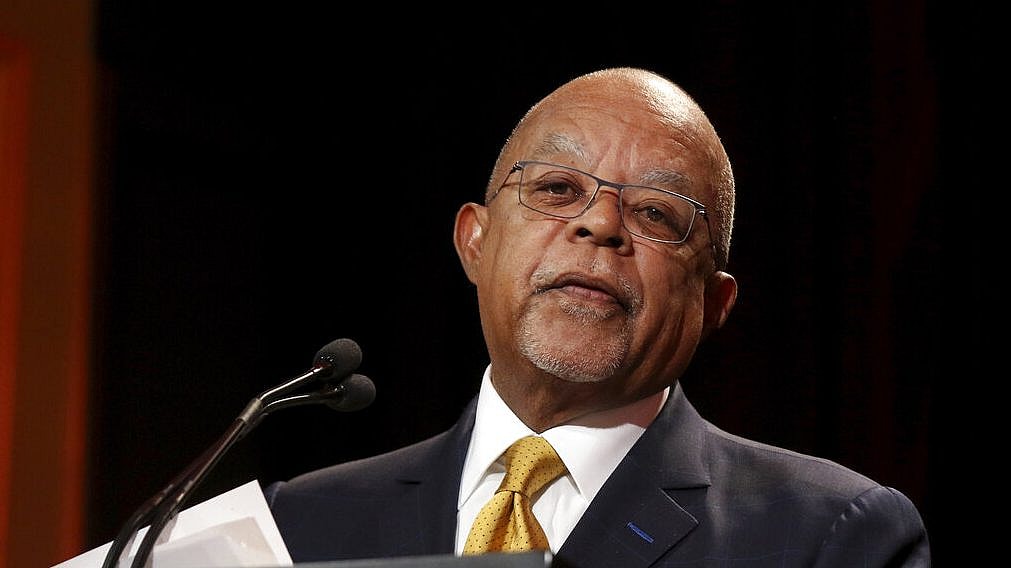A new, four-part PBS series aspires to showcase the beauty, joy and achievements of the Black community. “Making Black America: Through the Grapevine” is the brainchild of acclaimed historian and filmmaker Professor Henry Louis Gates Jr. as well as directors Stacey L. Holman and Shayla Harris.
It premieres Tuesday night and takes viewers on a journey from the early 1770s to the present day to demonstrate how Black people found ways to thrive in spite of oppression and racism.
“According to Hollywood, if you ask them what Black people do behind closed doors, all we do is sit around, talk about white people,” Gates says in an interview with theGrio. “That is not what we did.”

Continues Gates, “Just ask yourself what you did when you were growing up, when you’re sitting around watching TV with your family. Are all you are talking about is … white racism? No. You’re talking about falling in love, doing your homework, talking about the family reunion … Talking about the forms of culture that protected us from white racism and allowed us to reinforce our self-esteem in a world that denied our humanity. That’s the world that we’re celebrating in ‘Making Black America.’”
According to Gates, the series unpacks the way Black people created their own culturally affirming groups and social networks, from the Black church to business organizations to historically Black colleges and universities (HBCUs) and professional institutions such as the American Medical Association for Black doctors.
“The only way we had the stamina to fight back, the self-confidence … the energy … the presence of mind … the self-esteem to fight back,” he maintains, “was because we had these nourishing Black social networks where we got our value, our sense of beauty.”
The first episode of “Making Black America” will focus on a population that is often not covered in the mainstream media or entertainment industry’s portrayal of history — free Black Americans.
“We tend to think of the African American experience in terms of slavery,” says Gates, noting that most African Americans were enslaved in 1860. “But consistently, in 1830, 1840, 1850, 1860, from 10 to 12 percent of African American people were free, and they weren’t only free in the north. There are more free Black people living in the South in the confederacy in 1860 than living in the north.”
In the episode, Gates sits with friends, scholars, and other Black thought leaders to explore how these communities built schools, towns, and institutions to address every need Black people might face.
In a modern-day internet age where Black culture goes viral and is often turned into trends for sale, there is increasing debate over how to protect it from exploitation. For example, recent news accounts of a University of Southern California undergraduate, Princess Isis Lang, who started a majorette dance squad called the Cardinal Divas, which was inspired by HBCU dance squads.
While much of Black Twitter celebrated Lang’s act as creative and necessary, another segment took issue with the creation of the squad at a predominantly white institution, expressing concerns as well about the erasure of its HBCU origins or potential exposure to being watered down.
“I think the more Black culture, the better,” Professor Gates stresses in response to the general question of how to preserve and elevate Black culture. Gates, whose own family had four generations of HBCU graduates, says young people should take pride in freely expressing their Blackness in different ways.
“The more manifestations of Black culture, the better … Our social organizations have to be founded wherever Black people are,” he says, “and in this day and age, we are everywhere.”
Like those diverse manifestations of Black culture, Gates hopes to show that when it comes to Black joy in America, just as there are an estimated 42 million Black people in the country, there are 42 million ways you can see that joy persisting.
“This is a series about the range — the range of Blackness and its full complexity, including out-of-the-box manifestations that you never would have dreamed of,” he says. “It’s a celebration of the spirit that is at the heart of African-American culture.”
To watch the full interview with Professor Henry Louis Gates Jr., download theGrio’s streaming app, and tune into “The Weekly with Natasha Alford” every Friday.

Natasha S. Alford is VP of Digital Content and a Senior Correspondent at theGrio. An award-winning journalist, filmmaker, and TV personality, Alford is writing her forthcoming book “American Negra.” Follow her on Twitter and Instagram at @natashasalford.
TheGrio is FREE on your TV via Apple TV, Amazon Fire, Roku and Android TV. Also, please download theGrio mobile apps today!

